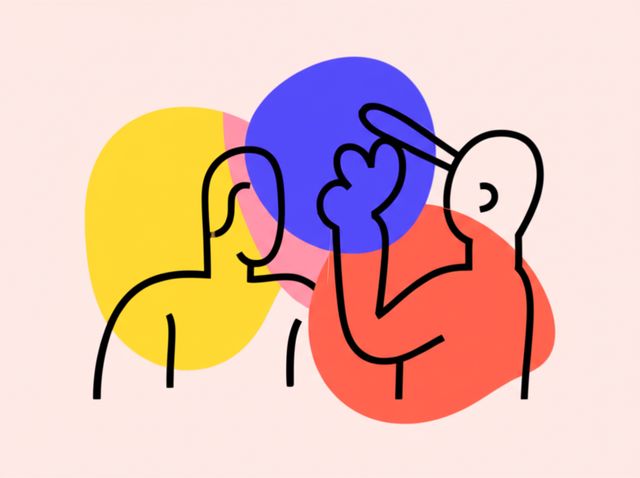Intersectionality
Intersectionality, a relatively new field of study but swiftly becoming a key concept in many academic disciplines and social conversations, helps us understand how different forms of discrimination overlap and interact to create unique and compounded experiences for individuals. Intersectionality acknowledges that people exist within multiple social identities, such as race, gender, class, sexual orientation, and ability, and that these identities interact to shape their experiences and opportunities in life. In other words, this concept explores how various forms of discrimination intersect to create unique and compounded experiences for individuals.
Core Concepts of Intersectionality
The term “intersectionality” was first coined by legal scholar Kimberlé Crenshaw in 1989 to describe the experiences of Black women who faced discrimination based on both race and gender. Crenshaw argued that traditional anti-discrimination laws failed to address the specific and unique challenges faced by Black women because they only considered one form of discrimination at a time. Intersectionality, however, recognizes that discrimination can occur in multiple forms and that these forms can intersect to create unique and compounded experiences.
Intersectionality emphasizes the importance of considering the intersection of multiple social identities when analyzing discrimination. Each of our social identities is a crossroads of power relations, where certain aspects of identities are privileged over others. When these power relations overlap or intersect, the results can lead to systematic oppression or systemic inequality. For example, a Black woman may face discrimination because of her race and gender. She may also face discrimination based on her class or sexual orientation. Intersectionality helps us to understand how these different forms of discrimination work together to create a unique and compounded experience for this individual.
Tools, Software, and Equipment
One does not require any particular tools, software, or equipment to study intersectionality. By nature, intersectionality is a social science theory and can be explored from a literary perspective. The concept can be grasped by reading works by scholars such as Kimberlé Crenshaw, Patricia Hill Collins, and Audre Lorde. There are many books and articles available on the topic that can be accessed through libraries or online. Additionally, courses offered by universities and online learning platforms can provide students with a structured approach to learning about intersectionality.
Benefits of Learning Intersectionality
Intersectionality helps us to understand the ways in which different forms of discrimination intersect to create unique and compounded experiences for individuals. This understanding can lead to more effective anti-discrimination policies and practices. Intersectionality can also help us to develop more inclusive and equitable societies.
- Increased cultural awareness and empathy
- Enhanced critical thinking skills
- Improved understanding of social justice issues
- Greater ability to challenge discrimination and promote equality
- Enhanced leadership and communication skills
Projects for Learning
Here are some projects that one studying intersectionality might pursue to further their learning:
- Conduct a research project on the intersection of two or more forms of discrimination.
- Develop an intersectionality training program for your workplace or community.
- Write a blog or article about intersectionality.
- Create a piece of art that explores the intersection of two or more forms of discrimination.
- Organize a community event that promotes intersectionality.
Projects Done by Professionals
Professionals who work with intersectionality in their day-to-day work may engage in projects such as:
- Developing and implementing anti-discrimination policies and practices.
- Providing training on intersectionality to employees or community members.
- Conducting research on intersectionality.
- Advocating for policies that promote intersectionality.
- Creating resources on intersectionality.
Personality Traits
Some personality traits that fit well with studying intersectionality include:
- Open-mindedness
- Empathy
- Critical thinking skills
- A commitment to social justice
- Strong communication skills
Benefits for Employers
Employers who understand intersectionality are better able to create inclusive and equitable workplaces. They are also better able to understand and address the needs of their diverse employees. Intersectionality can help employers to:
- Attract and retain a diverse workforce.
- Create a more inclusive and equitable workplace.
- Improve employee morale and productivity.
- Reduce workplace conflict.
- Enhance their reputation as a socially responsible organization.
Online Courses
There are many ways to learn about intersectionality, including taking online courses. Online courses can provide learners with a structured approach to learning about intersectionality and can help them to develop the skills and knowledge they need to apply intersectionality in their personal and professional lives.
Some of the skills and knowledge that can be gained from online courses on intersectionality include:
- An understanding of the concept of intersectionality.
- The ability to identify and analyze the different forms of discrimination that intersect to create unique and compounded experiences for individuals.
- The ability to develop and implement anti-discrimination policies and practices that are intersectional.
- The ability to advocate for policies that promote intersectionality.
Online courses can be a helpful learning tool for those who want to learn more about intersectionality. However, it is important to note that online courses alone are not enough to fully understand this topic. Intersectionality is a complex topic, and it is important to supplement online learning with other forms of learning, such as reading books and articles, attending workshops, and engaging in discussions with others.


